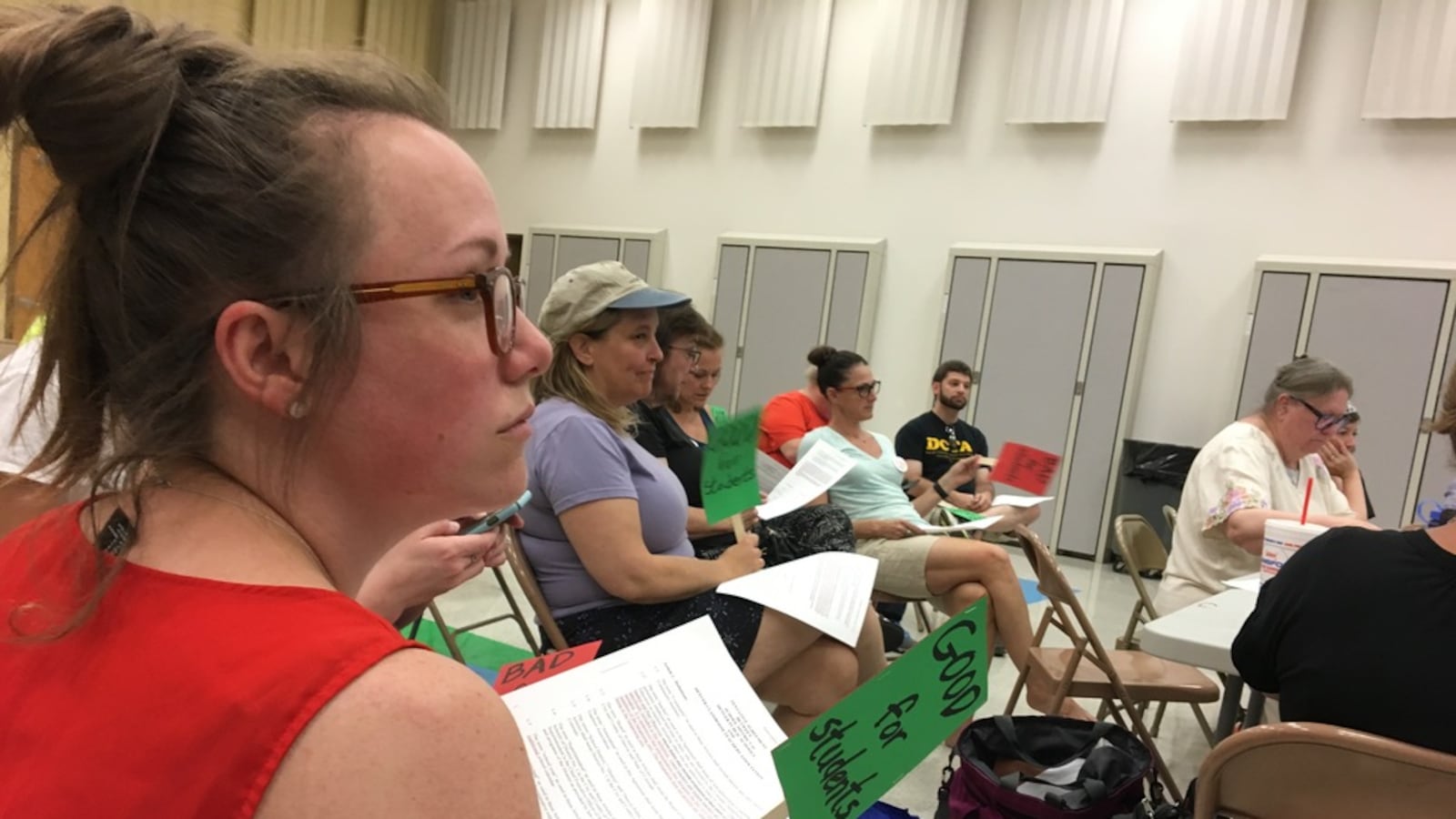The Denver teachers union’s board of directors voted Tuesday to ask its members to strike if the union and the school district fail to reach an agreement Wednesday on teacher pay.
It’s the first time Denver Classroom Teachers Association leaders have taken such a vote since the 1990s, said Corey Kern, the union’s deputy executive director. He said Denver teachers are fed up with the district and inspired by the recent actions of teachers in West Virginia and Oklahoma.
“Teachers don’t think the district is taking them seriously,” Kern said.
Since November, the union and the district have been negotiating an overhaul of Denver Public Schools’ pioneering pay-for-performance system, called ProComp. The current agreement expires at midnight Wednesday. Kern said the union’s preference is “to get a deal done,” but its directors were clear that “if that doesn’t ultimately happen, they will ask for a strike vote.”
Kern said he didn’t know when a strike vote would be held, but it probably wouldn’t happen immediately.
Denver Public Schools officials said in a statement Tuesday they “are committed to reaching an agreement.” If the sides can’t agree Wednesday, the district pledged to continue with the current pay-for-performance system to ensure teachers get their expected pay.
The union has offered a proposal that would pay teachers with a doctorate and 20 years or more of experience a base salary of $100,000.
The current salary schedule goes up to $74,130 for teachers with a doctorate and at least 11 years of experience. Under ProComp, teachers can earn bonuses and incentives on top of that. In 2015-16, the average second-year teacher earned an extra $5,599, according to the district.
In August the district and the union signed a new five-year master contract that included increases in base pay – which the district said were the largest raises in the metro area – and an additional $1,500 for teachers who work in high-poverty schools.
This round of negotiations is for the ProComp agreement, which is separate from the master contract. The district first piloted pay-for-performance in 1999. Voters in 2005 approved a tax increase to fund it. Those taxes will generate about $35 million this year, according to district officials. The last significant redesign of the ProComp system happened in 2008.
The union’s proposal calls for higher base salaries and reduces the size of the incentives teachers can earn for working in hard-to-serve schools or hard-to-fill positions. Union leaders have said teachers want a more predictable pay structure that relies less on bonuses, which can vary year to year.
The district, meanwhile, has suggested increasing some incentives as a way to attract and retain teachers. The district has also suggested providing teachers who earn four years of “distinguished” evaluations with base salary increases equivalent to what they would get for earning a master’s degree.
The union’s proposal to raise the maximum base salary to $100,000 would require more than twice as much money as taxpayers pay into ProComp each year, a district spokeswoman said.
The two sides are set to return to the negotiating table Wednesday morning.

